Maximizing Team Strengths in Collaborative Research Publication
We're delving into the heart of collaborative research and publication - a process that resonates deeply with the ethos (for us, by us - FUBU and Nothing about us, without us!) of the MAPS lab. Our focus is on harnessing the diverse strengths of our team members, particularly when working with young adult patient research partners (PaRES). These individuals bring unique perspectives and skills to the table, often shaped by their experiences with mental illness, social determinants of health, and various disabilities. In this post, we'll explore a comprehensive list of roles and skills integral to the manuscript writing and publication process, along with a proposed workflow to match these tasks with the strengths and aspirations of our team members.
Comprehensive List of Roles and Skills:
Research and Synthesis Skills: These roles are critical for gathering and analyzing information. They include conducting literature reviews and data analysis (where applicable), where team members with strong analytical and numerical skills thrive.
Writing Skills: Getting the words on the page and drafting different sections of the manuscript to get the publication process moving; this is perfect for folks who do not fear the blank page or simply enjoy the process of writing.
Editing Skills: meticulous language editing - including grammar and sentence structure; these roles are perfect for those with a keen eye for detail (which includes looking for potential plagiarism.)
Organizational and Administrative Skills: These tasks require excellent organizational abilities, including document management and timeline tracking, ensuring the project stays on course.
Communication Skills: Effective coordination, facilitation, and liaison with team members and journals are paramount, making these roles suitable for those with strong communication skills.
Technical Skills: These include formatting and layout responsibilities and graphic design for creating compelling visual aids.
Critical Thinking and Review: Engaging in peer review, this role is ideal for individuals who enjoy critical analysis and providing constructive feedback.
Supportive Skills: Offering motivational support and ensuring accessibility, these roles are crucial for maintaining an inclusive and supportive research environment.
Educational and Developmental Opportunities: Including mentoring and capacity-sharing, these roles help foster professional growth and knowledge transfer within the team.
Journal Selection and Correspondence: Identifying suitable journals and understanding their submission requirements are key tasks for those interested in the publishing aspect of research.
Funding and Financial Management: These roles involve securing funding for publication charges and managing the project’s budget.
Creative Contributions: For the creatively inclined, roles like creating diagrams or visual images for the publication where needed (which it’s often needed to visualize the content).
Technical and IT Support: Managing research-related software and other online collaborative tools is critical in today’s digital research environment.
Logistics and Event Planning: Organizing meetings and workshops (where applicable) are key logistical roles in any research project.
Proposed Workflow:
Assessment and Alignment: Begin with an assessment of each team member’s strengths, interests, and developmental goals. This is a collaborative process where open dialogue is encouraged.
Role Assignment: Based on the assessment, assign roles that align with each member's strengths and interests. Flexibility is key, as roles may evolve or change throughout the project.
Training and Support: Provide necessary training and support, especially for roles that involve new skill development. This could include workshops, mentoring sessions, or online resources.
Regular Check-Ins: Implement regular team meetings and individual check-ins to monitor progress, address challenges, and offer support. This ensures that everyone remains engaged and motivated.
Feedback and Adaptation: Encourage feedback from team members on their roles and the overall process. Be open to making adjustments to roles and workflows as needed.
Celebrating Milestones: Acknowledge and celebrate milestones in the project. This fosters a sense of achievement and team spirit.
In the MAPS Lab, we believe in the power of collaboration and the importance of leveraging the diverse strengths of our team members. Through this thoughtful approach to role assignment and workflow management, we aim to create an inclusive, productive, and fulfilling research environment. We invite our readers to share their experiences and insights on collaborative research projects, as we continue to learn and grow together in this exciting field.
